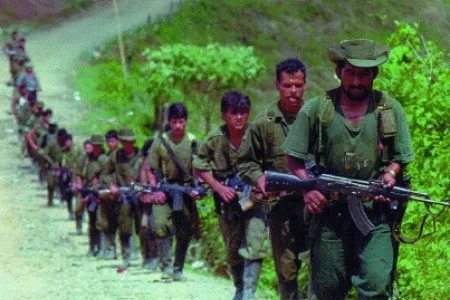The Colombian peacebuilding process: discussion at an international seminar

Peace talks between the Colombian government and the Revolutionary Armed Forces of Colombia have created international expectations of an end to the longest internal armed conflict in Latin America. However, peace negotiations are facing crucial obstacles: agreements reached thus far are too general and need further detailed development; both parties are facing internal opposition; the social demand for transitional justice is widespread, but its implementation will be difficult; and, because of this, legitimising a peace agreement would require a protracted political effort, civic participation and a solid communication campaign explaining the terms of the agreement.
The post-agreement phase would require the implementation of key public policies to close the rural-urban gap and cut the guerrilla-drug trafficking link; new and more efficient government agencies at the subnational level should be created to deliver public goods; military institutions should have greater civilian control and leadership to transform their role from internal security to that of national defence; and since the peace process has been gender blind, it will be crucial to increase women’s participation in the peacebuilding process. Arms decommissioning and arsenal destruction should have a blueprint, and social movements should oversee the enforcement of peace agreements and peacebuilding policies.